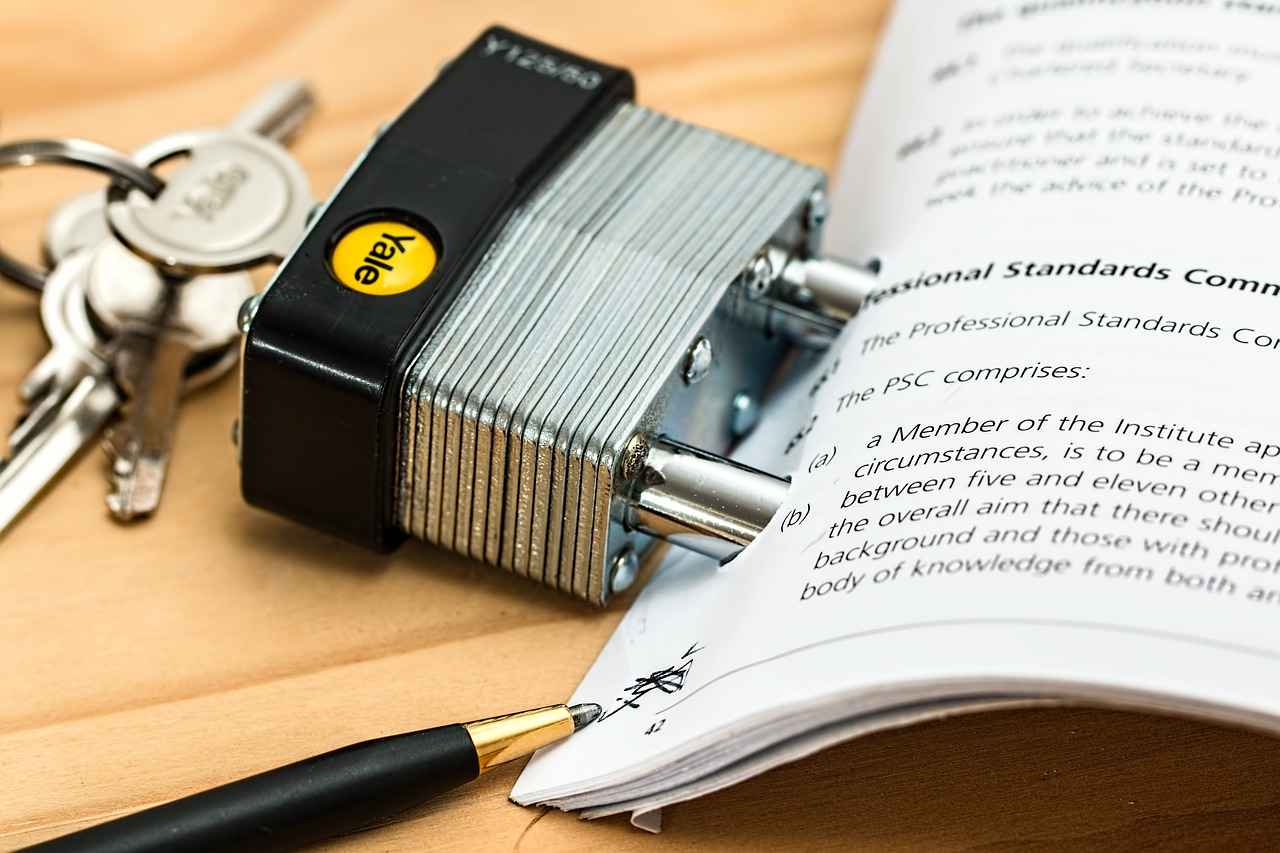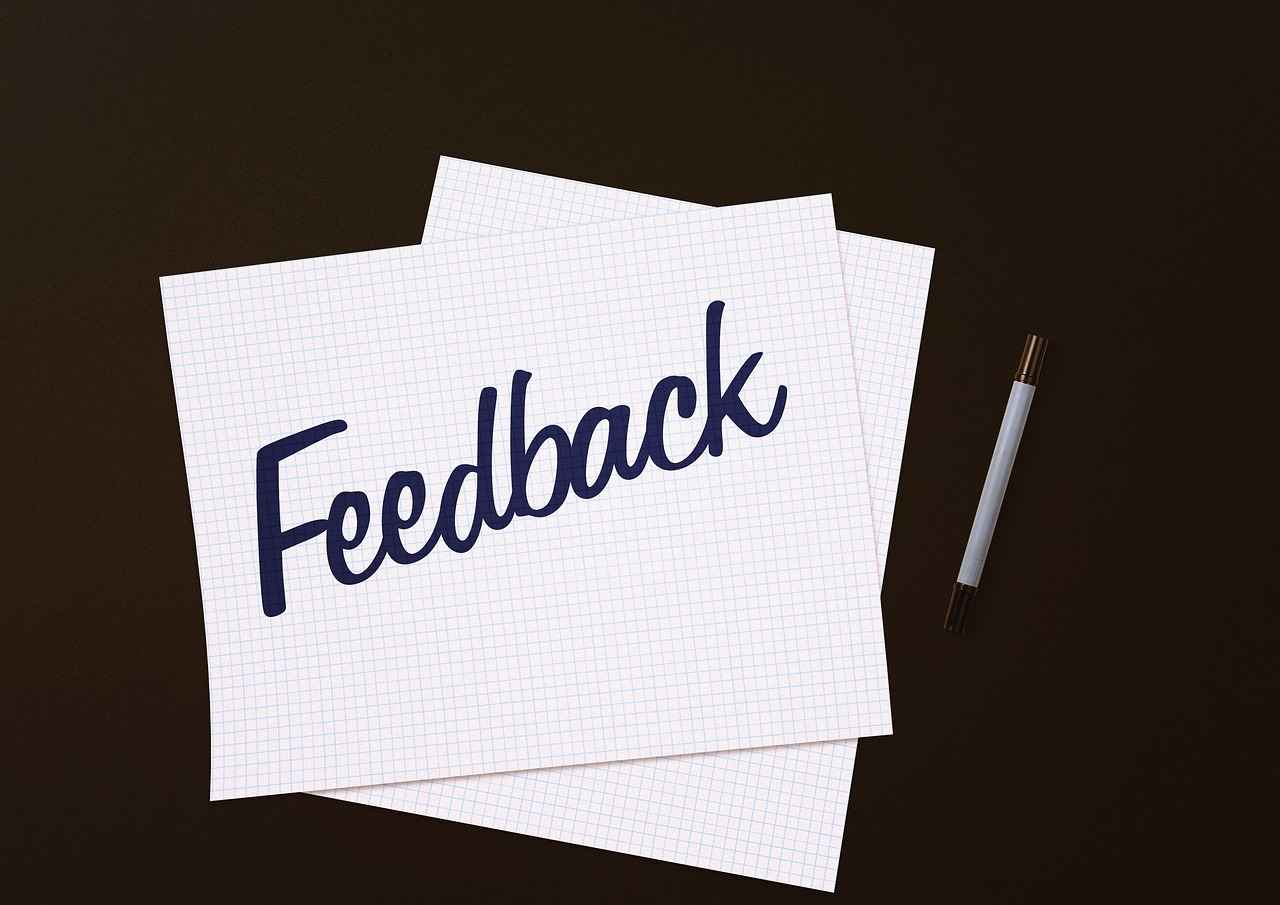This article discusses the most common types of legal cases in the U.S. and provides expert guidance on finding qualified lawyers in Washington, DC, and major metropolitan areas.
Personal Injury Cases
Personal injury cases are among the most prevalent legal issues in the United States. They typically arise from accidents, negligence, or intentional harm. If you’ve been injured due to someone else’s actions, it’s crucial to find a qualified personal injury attorney. Look for lawyers with a strong track record of successful settlements and verdicts. Utilize platforms like Avvo or Martindale-Hubbell to check reviews and ratings. Red flags include lawyers who promise guaranteed outcomes or those who lack experience in personal injury cases.
Medical Malpractice Claims
Medical malpractice involves negligence by healthcare professionals, leading to patient harm. To find a competent attorney in this field, seek out those who specialize in medical malpractice and have experience with similar cases. Verify their credentials through state bar associations and look for testimonials from former clients. Be wary of attorneys who lack a solid understanding of medical terminology or who do not consult with medical experts on your behalf.
Breach of Contract Disputes
Breach of contract disputes are common in business transactions. It’s essential to hire an attorney who has a deep understanding of contract law and experience in your specific industry. Look for legal professionals who have successfully handled similar cases and can provide references. Avoid attorneys who do not communicate clearly about their strategies or fees.
Property Disputes
Property disputes can arise from various issues, including ownership, zoning, or landlord-tenant relations. To navigate these complexities, find an attorney who specializes in real estate law. Check their success rate in resolving property disputes and ensure they are familiar with local regulations. Red flags include a lack of transparency in fees or a dismissive attitude towards your concerns.
Landlord-Tenant Disputes
Disputes between landlords and tenants are frequent and can involve issues like eviction, security deposits, and lease agreements. It’s vital to find an attorney with experience in housing law. Look for local attorneys who understand tenant rights and landlord obligations. Be cautious of lawyers who do not offer a clear outline of their fees or seem unfamiliar with local housing regulations.
Defamation Cases (Libel/Slander)
Defamation cases involve harming someone’s reputation through false statements. Choosing an attorney with expertise in media law is essential for success in these cases. Look for lawyers who have handled defamation suits and understand the nuances of free speech and privacy laws. Avoid attorneys who lack experience in this specific area or who cannot provide examples of past successes.
Employment Disputes
Employment disputes can encompass wrongful termination, discrimination, or harassment claims. Finding an attorney who specializes in employment law is crucial. Look for lawyers with experience in similar cases and a solid understanding of federal and state labor laws. Be wary of attorneys who do not provide a clear strategy or seem indifferent to your situation.
Product Liability Cases
Product liability cases arise when consumers are harmed by defective products. Selecting a lawyer with experience in this area can significantly affect the outcome of your case. Look for attorneys who have successfully handled product liability claims and understand the complexities of consumer safety laws. Red flags include a lack of experience with product liability or a reluctance to discuss previous cases.
Wrongful Death Claims
Wrongful death claims seek compensation for the loss of a loved one due to negligence. Finding a compassionate yet assertive attorney is essential for navigating this difficult process. Look for lawyers who specialize in wrongful death cases and have a track record of successful settlements. Avoid attorneys who rush through consultations or do not demonstrate empathy towards your situation.
Class Action Lawsuits
Class action lawsuits allow groups of individuals to sue for collective damages. An attorney with experience in class actions can help you understand your rights and options. Seek out lawyers who have successfully led class action suits and are familiar with the legal procedures involved. Be cautious of attorneys who lack a proven track record in this area.
Assault and Battery Cases
Assault and battery cases involve personal harm and can lead to criminal charges or civil suits. Finding an attorney who specializes in criminal law is crucial for these cases. Look for lawyers with experience in defending clients against assault charges. Red flags include attorneys who do not communicate clearly about their strategies or who lack courtroom experience.
Drug Offenses
Drug offenses encompass a wide range of legal issues, from possession to trafficking. It’s essential to find an attorney experienced in criminal defense to navigate the complexities of these cases. Look for lawyers with a strong background in drug law and who have successfully defended clients in similar situations. Avoid attorneys who promise quick fixes or lack a solid strategy for your defense.
Theft and Burglary Charges
Theft and burglary charges can have severe legal consequences. An attorney with a strong background in criminal law can help you build a solid defense. Look for lawyers who have experience in handling theft cases and can provide references from past clients. Red flags include attorneys who do not take the time to understand your case or who lack trial experience.
Fraud and Embezzlement Cases
Fraud and embezzlement are serious financial crimes. Finding a lawyer who specializes in white-collar crime can provide the expertise necessary for your defense. Look for attorneys with a strong background in financial law and a successful track record in similar cases. Be cautious of lawyers who lack transparency about their fees or who do not communicate clearly about your case.
Murder and Homicide Cases
Murder and homicide cases are among the most serious criminal charges. Choosing an attorney with significant experience in criminal defense is crucial for navigating these high-stakes cases. Look for lawyers who have a proven track record in murder defenses and who can provide references. Avoid attorneys who lack courtroom experience or who do not seem committed to your case.
DUI/DWI Offenses
DUI/DWI offenses can lead to severe penalties, including fines and jail time. Finding an attorney with expertise in DUI defense is essential to mitigate the consequences of these charges. Look for lawyers who specialize in DUI cases and have a successful track record. Red flags include attorneys who do not explain the legal process clearly or who seem unprepared to defend your case.
Domestic Violence Cases
Domestic violence cases involve sensitive issues and require compassionate legal representation. Selecting an attorney experienced in family law can help you navigate these complex situations. Look for lawyers who specialize in domestic violence cases and have a solid understanding of the legal protections available. Be cautious of attorneys who do not take the time to understand your situation or who lack a track record in family law.

Personal Injury Cases
are among the most prevalent legal issues faced in the United States. These cases typically arise from accidents, negligence, or intentional harm, leading to physical or emotional injuries. Victims of personal injury incidents often seek compensation for medical expenses, lost wages, and pain and suffering. As a result, understanding how to select the right attorney for these cases is crucial, as the choice can significantly impact the outcome of the claim.
When searching for a personal injury attorney, consider the following important factors:
- Experience and Specialization: Look for attorneys who specialize in personal injury law. Their experience in handling similar cases can provide valuable insights into the legal process and potential outcomes.
- Track Record: Investigate the attorney’s history of settlements and verdicts. A successful track record can indicate their ability to negotiate effectively and represent clients in court.
- Client Reviews: Reading reviews from previous clients can give you a sense of the attorney’s communication style, professionalism, and overall satisfaction.
- Initial Consultation: Many personal injury attorneys offer free consultations. Use this opportunity to ask questions and assess their approach to your case.
- Fee Structure: Understand the attorney’s fee structure. Most personal injury lawyers work on a contingency basis, meaning they only get paid if you win your case. Ensure you are clear about any potential costs involved.
In major metropolitan areas like New York City, Los Angeles, and Chicago, the competition among personal injury attorneys is fierce. This can be advantageous for clients, as it often leads to better services and more options. However, it also means that you should be diligent in your research. Utilize legal directories, bar association referrals, and online platforms to find qualified attorneys in your area.
Additionally, be wary of red flags when selecting an attorney. These may include:
- Lack of Communication: If an attorney is difficult to reach or does not respond promptly to your inquiries, it may be a sign of poor client service.
- High Pressure Tactics: Avoid attorneys who pressure you into signing contracts or making hasty decisions without giving you adequate time to consider your options.
- Overpromising Outcomes: Be cautious of attorneys who guarantee results. Legal cases can be unpredictable, and no attorney can assure a specific outcome.
Ultimately, the right personal injury attorney will not only have the necessary qualifications and experience but will also demonstrate a genuine commitment to advocating for your best interests. With thorough research and careful consideration, you can find a legal professional who will guide you through the complexities of your personal injury case, helping you secure the compensation you deserve.

Medical Malpractice Claims
are among the most complex legal issues faced within the healthcare system. These cases arise when a healthcare professional fails to provide the standard of care expected, resulting in harm to a patient. Understanding the nuances of medical malpractice is crucial for anyone considering legal action, and knowing how to choose the right attorney can make all the difference in the outcome of your case.
When searching for a qualified attorney to handle a medical malpractice claim, there are several key factors to consider:
- Specialization: Look for attorneys who specialize in medical malpractice law. This area of law requires a deep understanding of both legal principles and medical practices. An attorney with experience in this field will be familiar with the nuances of medical standards and can better assess the viability of your case.
- Track Record: Investigate the attorney’s history of handling similar cases. A proven track record of successful settlements or verdicts in medical malpractice claims can indicate their ability to navigate the complexities of such cases effectively.
- Client Reviews: Online reviews and testimonials from former clients can provide insights into an attorney’s communication style, professionalism, and overall effectiveness. Look for patterns in feedback to gauge their reputation.
- Initial Consultation: Many attorneys offer a free initial consultation. Use this opportunity to ask questions about their experience, approach to your case, and how they plan to proceed if you choose to work with them.
- Fees and Costs: Understand the attorney’s fee structure. Most medical malpractice attorneys work on a contingency fee basis, meaning they only get paid if you win your case. Ensure you understand any additional costs that might arise during the legal process.
It is also important to be aware of the red flags that may indicate a less-than-reputable attorney:
- Lack of Communication: If an attorney is unresponsive or fails to communicate clearly during your initial interactions, this may indicate potential issues down the line.
- Overpromising Results: Be wary of attorneys who guarantee specific outcomes. While experienced lawyers can provide informed predictions, no one can promise a particular result in a legal case.
- Pressure Tactics: An attorney who pressures you to sign a contract quickly or make decisions without giving you proper time to consider your options may not have your best interests at heart.
In addition to these considerations, it can be beneficial to seek referrals from trusted sources, such as friends, family, or other legal professionals. Networking within your community can provide valuable insights into which attorneys have a good reputation for handling medical malpractice claims.
As you navigate the process of selecting an attorney, remember that your choice can significantly impact the outcome of your case. The right attorney will not only have the necessary qualifications and experience but will also demonstrate a commitment to representing your best interests throughout the legal process. By taking the time to conduct thorough research and asking the right questions, you can find a qualified attorney who will help you pursue the justice and compensation you deserve.

Breach of Contract Disputes
are a common occurrence in the business world, often leading to significant financial and operational challenges for the parties involved. A breach of contract occurs when one party fails to fulfill their obligations as stipulated in a legally binding agreement. These disputes can arise in various contexts, such as employment contracts, sales agreements, and service contracts. Understanding the intricacies of contract law is essential for effectively navigating these disputes and achieving a favorable outcome.
When faced with a breach of contract issue, finding a skilled attorney who specializes in contractual law is crucial. An experienced lawyer can provide invaluable guidance through the complexities of the legal system, ensuring that your rights are protected and that you have the best chance of resolving the dispute amicably or in court if necessary.
Here are some key points to consider when searching for a qualified attorney to handle breach of contract disputes:
- Specialization in Contract Law: Look for attorneys with a focus on contract law or commercial litigation. Their specialized knowledge will be beneficial in understanding the nuances of your specific case.
- Experience: Consider the attorney’s years of practice and their track record in handling breach of contract cases. An attorney with extensive experience is likely to have encountered various scenarios and can anticipate potential challenges.
- Reputation: Research online reviews and testimonials to gauge the attorney’s reputation. A strong track record of success and positive client feedback can be a good indicator of their capabilities.
- Communication Skills: Effective communication is vital in legal matters. Choose an attorney who is responsive, clear in their explanations, and willing to keep you informed throughout the process.
- Fee Structure: Understand the attorney’s fee structure before hiring them. Some attorneys work on a contingency basis, while others charge hourly rates. Make sure you are comfortable with the financial arrangement.
Additionally, it’s essential to be aware of potential red flags when hiring a lawyer for breach of contract disputes:
- Lack of Transparency: If an attorney is unwilling to discuss their fees, experience, or strategy, it may indicate a lack of professionalism.
- Poor Communication: If the attorney is difficult to reach or does not respond promptly to inquiries, this could signal future communication issues.
- Unrealistic Promises: Be cautious of attorneys who guarantee specific outcomes. Legal matters are inherently uncertain, and no attorney can predict the result with absolute certainty.
In major metropolitan areas like New York City, Los Angeles, and Chicago, there are numerous platforms where you can find qualified attorneys. Websites such as Avvo, FindLaw, and Nolo offer searchable directories of lawyers based on their specialties, along with client reviews and ratings.
It’s also beneficial to consult local bar associations, which often provide referral services to help you find reputable attorneys in your area. Networking with business professionals or seeking recommendations from trusted contacts can also lead you to qualified legal representation.
In conclusion, navigating breach of contract disputes requires the expertise of a skilled attorney who understands the complexities of contractual law. By taking the time to research and evaluate potential lawyers, you can find a qualified professional who will advocate for your rights and work towards a favorable resolution.

Property Disputes
are a common issue in the legal landscape, often arising from a variety of factors such as ownership conflicts, zoning regulations, and boundary disagreements. These disputes can involve individuals, businesses, or government entities, and the complexity of the issues can vary significantly. To effectively navigate these challenges, it is essential to engage an attorney who specializes in real estate law and has a proven track record in handling similar cases.
When seeking legal representation for property disputes, consider the following key factors:
- Experience in Property Law: Look for attorneys with extensive experience specifically in property disputes. They should be familiar with local laws and regulations that may affect your case.
- Track Record: Review the attorney’s past cases and outcomes. A lawyer with a history of successful resolutions in property disputes can provide confidence in their capabilities.
- Client Testimonials: Seek out reviews and testimonials from previous clients. Positive feedback can indicate an attorney’s reliability and effectiveness.
- Communication Skills: Choose an attorney who communicates clearly and promptly. Effective communication is crucial for understanding your case and making informed decisions.
In addition to these factors, it is important to be aware of potential red flags when selecting an attorney:
- Unclear Fee Structures: Be cautious of attorneys who do not provide transparent information about their fees. Ensure you understand their billing practices before signing any agreements.
- Lack of Specialization: Avoid attorneys who claim to handle all types of law but do not have a specific focus on property disputes. Specialization often correlates with a deeper understanding of the nuances involved.
- Pressure Tactics: Be wary of attorneys who pressure you into making quick decisions. A reputable attorney will give you the time and space to consider your options.
Finding the right attorney for property disputes in major metropolitan areas such as New York City, Los Angeles, or Chicago can also involve utilizing various platforms and resources:
- Legal Directories: Websites like Avvo and FindLaw allow you to search for attorneys based on their practice areas and client ratings.
- Bar Associations: Local or state bar associations often provide referral services that can connect you with qualified attorneys in your area.
- Personal Referrals: Asking friends, family, or colleagues for recommendations can lead you to trustworthy attorneys who have successfully handled similar cases.
In conclusion, property disputes can be complex and emotionally charged, making it essential to have a knowledgeable and experienced attorney by your side. By focusing on the right qualifications, utilizing various resources, and being aware of potential pitfalls, you can find an attorney who will advocate effectively for your interests and help you achieve a favorable resolution.

Landlord-Tenant Disputes
Disputes between landlords and tenants are a common occurrence in the United States, often leading to significant stress and financial burden for both parties. Understanding tenant rights is essential for tenants, while landlords must be aware of their responsibilities to avoid potential legal issues. It’s crucial to seek a knowledgeable attorney who specializes in landlord-tenant law to navigate these often-contentious situations effectively.
When faced with a landlord-tenant dispute, the first step is to familiarize yourself with the specific laws governing rental agreements in your state. Each state has its own set of regulations regarding tenant rights and landlord responsibilities. This includes rules about security deposits, eviction processes, and maintenance obligations. For example, in many states, landlords are required to provide habitable living conditions, while tenants must adhere to the terms of the lease agreement.
Finding a qualified attorney can make a significant difference in the outcome of a dispute. Here are some strategies to help you locate the right legal representation:
- Research Local Attorneys: Start by searching online for attorneys who specialize in landlord-tenant disputes in your area. Websites like Avvo and FindLaw provide listings and reviews of lawyers based on their areas of expertise.
- Check Credentials: Look for attorneys with a strong background in real estate law or tenant rights. Verify their education, years of experience, and any relevant certifications.
- Read Reviews: Client testimonials can provide insight into an attorney’s effectiveness and approach. Pay attention to feedback regarding their communication skills and success rates in similar cases.
- Consult Local Bar Associations: Many local bar associations offer referral services that can connect you with qualified attorneys. This is a reliable way to find legal professionals who are in good standing with the state bar.
- Schedule Consultations: Once you’ve identified potential attorneys, schedule consultations to discuss your case. This will allow you to assess their understanding of landlord-tenant law and their approach to handling disputes.
When meeting with a potential attorney, be prepared to ask questions that will help you gauge their suitability for your case:
- What is your experience with landlord-tenant disputes?
- Can you provide examples of similar cases you’ve handled?
- What is your approach to resolving disputes? Do you prefer negotiation or litigation?
- What are your fees, and how are they structured?
Be cautious of red flags when hiring an attorney. Avoid those who make unrealistic promises, pressure you into making quick decisions, or lack transparency about their fees and services. A reputable attorney will provide clear, honest information and allow you to make informed choices about your legal options.
In addition to finding the right attorney, it’s important to document all communications and agreements related to your rental situation. This can include emails, text messages, and written notices. Having a detailed record can be invaluable in supporting your case should it escalate to legal action.
Ultimately, landlord-tenant disputes can be resolved through effective communication and a clear understanding of the law. By equipping yourself with knowledge about your rights and responsibilities, and by enlisting the help of a qualified attorney, you can navigate these disputes with confidence.

Defamation Cases (Libel/Slander)
Defamation cases, which encompass both libel (written statements) and slander (spoken statements), are a significant area of law that can have profound implications for individuals and businesses alike. These cases arise when false statements are made about a person or entity, resulting in harm to their reputation. The stakes are high, as a successful defamation claim can lead to substantial monetary damages and a restoration of the harmed party’s good name.
When pursuing a defamation case, it is essential to choose an attorney who specializes in media law and has a deep understanding of the intricacies involved in these types of claims. Here are some critical factors to consider when searching for the right legal representation:
- Experience in Defamation Law: Look for an attorney who has a proven track record in handling defamation cases. Their experience will be invaluable in navigating the complexities of the law, which can vary significantly from state to state.
- Understanding of First Amendment Rights: A competent defamation attorney should have a solid grasp of First Amendment protections, as these rights often play a crucial role in defamation claims, especially when public figures are involved.
- Trial Experience: Not all defamation cases settle out of court. Ensure that your attorney has substantial trial experience, as this will be beneficial if your case needs to be litigated.
- Reputation and References: Research the attorney’s reputation within the legal community. Client testimonials and peer reviews can provide insight into their effectiveness and professionalism.
- Clear Communication: Your attorney should be able to explain legal concepts in a way that is easy to understand. They should keep you informed throughout the process and be responsive to your questions and concerns.
Finding qualified legal representation in metropolitan areas like New York City, Los Angeles, or Chicago can be competitive. Here are some practical methods to locate the best defamation attorneys:
- Online Legal Directories: Websites such as Avvo and FindLaw allow you to search for attorneys by specialty and location. They provide ratings, reviews, and detailed profiles that can help you make an informed decision.
- Local Bar Associations: Many local bar associations offer referral services that can connect you with attorneys who specialize in defamation law. This can be a reliable way to find qualified professionals in your area.
- Networking: Ask for referrals from friends, family, or colleagues who have had experience with defamation cases. Personal recommendations can often lead you to trustworthy attorneys.
- Consultations: Schedule initial consultations with potential attorneys. This meeting will give you a sense of their approach and whether you feel comfortable working with them. Many attorneys offer free consultations, making it easier to explore your options.
While hiring an attorney, be aware of potential red flags that could indicate a poor fit:
- Lack of Specialization: Avoid attorneys who do not specialize in defamation law or media law, as they may not be familiar with the nuances of these cases.
- Poor Communication: If an attorney is unresponsive or fails to communicate clearly during the initial consultation, it may be a sign that they will not prioritize your case.
- High Pressure Tactics: Be cautious of attorneys who pressure you to sign agreements or take on your case immediately without allowing you time to consider your options.
- Unclear Fee Structures: Ensure you understand the attorney’s fee structure before hiring them. Be wary of those who cannot provide clear and transparent pricing.
In conclusion, pursuing a defamation case requires careful consideration and the right legal representation. By focusing on attorneys with expertise in media law, understanding their qualifications, and utilizing reliable resources, you can increase your chances of success in your defamation claim.

Employment Disputes
encompass a wide range of issues that can arise in the workplace, including wrongful termination, workplace discrimination, harassment, and unpaid wages. Navigating these complex matters requires a thorough understanding of employment law and the ability to advocate effectively for your rights. Here, we will delve into the common types of employment disputes, the importance of legal representation, and how to find the right attorney for your needs.
When facing an employment dispute, it’s critical to identify the specific nature of your claim. For instance, wrongful termination occurs when an employee is fired for reasons that violate federal or state laws, such as discrimination based on race, gender, age, or disability. Similarly, workplace discrimination can manifest in various forms, including unequal treatment in hiring, promotions, and job assignments. These issues not only affect your professional life but can also have significant emotional and financial repercussions.
To effectively address these disputes, finding an attorney with a solid background in employment law is essential. Here are some key factors to consider when searching for legal representation:
- Experience and Specialization: Look for an attorney who specializes in employment law and has a proven track record of handling cases similar to yours. An experienced lawyer will be familiar with the nuances of employment regulations and how they apply to your situation.
- Reputation: Research potential attorneys through online reviews, testimonials, and professional ratings. A reputable lawyer should have positive feedback from previous clients and a strong standing within the legal community.
- Consultation: Many attorneys offer free initial consultations. Use this opportunity to assess their communication style, approach to your case, and overall compatibility with your needs.
- Fee Structure: Understand the attorney’s fee structure upfront. Some lawyers work on a contingency basis, meaning they only get paid if you win your case, while others may charge hourly rates or flat fees. Be sure to clarify any potential costs to avoid surprises later.
It’s also important to recognize red flags during your search for legal representation. Avoid attorneys who:
- Promise guaranteed outcomes or settlements, as no lawyer can predict the result of a case.
- Rush you into making decisions without fully explaining your options.
- Have multiple complaints filed against them with the state bar association.
In major metropolitan areas such as New York City, Los Angeles, and Chicago, there are numerous resources available to help you find qualified employment attorneys. Online platforms like Avvo, FindLaw, and Martindale-Hubbell allow you to search for lawyers based on their specialties, location, and client reviews. Additionally, local bar associations often provide referral services that can connect you with attorneys who meet your specific needs.
In conclusion, employment disputes can be challenging and emotionally taxing. However, with the right legal representation, you can navigate these issues effectively. By taking the time to research and select an attorney who understands employment law, you can protect your rights and seek justice in the workplace.

Product Liability Cases
are a critical aspect of consumer protection law, arising when individuals suffer harm due to defective products. These cases can involve a wide range of products, from household items to pharmaceuticals. Understanding the nuances of product liability is essential for consumers and legal professionals alike.
In the United States, product liability laws are designed to hold manufacturers, distributors, and retailers accountable for injuries caused by defective products. There are generally three categories of defects that can lead to liability:
- Design Defects: Flaws in the design of the product that make it inherently unsafe.
- Manufacturing Defects: Errors that occur during the production process, resulting in a product that deviates from its intended design.
- Marketing Defects: Inadequate warnings or instructions that fail to inform consumers about potential risks associated with the product.
When pursuing a product liability case, selecting the right attorney is crucial. Here are several factors to consider:
- Experience: Look for a lawyer who specializes in product liability cases and has a proven track record of successful outcomes. Experience in similar cases can provide invaluable insights into the complexities of your situation.
- Reputation: Research the attorney’s reputation within the legal community and among former clients. Online reviews and testimonials can offer a glimpse into their reliability and effectiveness.
- Resources: Product liability cases often require extensive resources, including expert witnesses and investigative support. Ensure that the attorney you choose has access to these necessary resources.
- Communication: A good attorney should be able to explain legal concepts clearly and keep you informed throughout the process. Look for someone who values open communication and is responsive to your questions.
Additionally, be aware of potential red flags when hiring an attorney:
- Guarantees of Outcomes: Be cautious of any attorney who promises a specific outcome. Legal cases can be unpredictable, and no reputable lawyer can guarantee success.
- Lack of Transparency: If an attorney is unwilling to discuss their fees or the details of your case openly, it may indicate a lack of professionalism.
- Pressure Tactics: Avoid lawyers who pressure you into making quick decisions. A trustworthy attorney will give you the time and space to consider your options.
To find qualified product liability attorneys in major metropolitan areas like New York City, Los Angeles, and Chicago, consider the following methods:
- Online Directories: Websites such as Avvo, FindLaw, and Martindale-Hubbell allow you to search for attorneys based on their practice areas and location.
- State Bar Associations: Many state bar associations offer referral services that can connect you with qualified lawyers in your area.
- Personal Referrals: Ask friends, family, or colleagues for recommendations, especially if they have had positive experiences with attorneys in similar cases.
In summary, navigating product liability cases requires a thorough understanding of the law and a strategic approach to selecting legal representation. By focusing on experience, reputation, and communication, you can find a qualified attorney who will advocate for your rights and help you achieve a favorable outcome.

Wrongful Death Claims
are a sensitive and emotionally charged area of law, seeking compensation for the loss of a loved one due to the negligence or wrongful actions of another party. These claims can arise from various situations, including automobile accidents, medical malpractice, workplace incidents, and criminal acts. Understanding the intricacies of wrongful death claims is crucial for families who are navigating this difficult time.
When pursuing a wrongful death claim, it is essential to find an attorney who is not only knowledgeable in this specific area of law but also exhibits compassion and understanding of the emotional turmoil you are experiencing. Here are some key points to consider when searching for the right legal representation:
- Experience and Specialization: Look for an attorney who specializes in wrongful death cases. Their experience will ensure they are familiar with the legal nuances and challenges that may arise.
- Track Record: Review the attorney’s past cases and their outcomes. A successful track record in similar cases can provide confidence in their ability to handle your claim effectively.
- Compassionate Approach: A good wrongful death attorney should demonstrate empathy and understanding. They should be willing to listen to your story and provide support throughout the legal process.
- Communication Skills: Your attorney should be able to explain complex legal terms in a way that you can understand. Clear communication is vital for ensuring you are informed every step of the way.
- Fee Structure: Most wrongful death attorneys work on a contingency fee basis, meaning they only get paid if you win your case. Ensure you understand their fee structure before proceeding.
Additionally, it is important to ask potential attorneys the following questions:
- What is your experience with wrongful death claims?
- Can you provide references from past clients?
- What is your strategy for handling my case?
- How will you keep me informed about the progress of my case?
Finding the right attorney can significantly impact the outcome of your wrongful death claim. Look for professionals who have a deep understanding of both the legal landscape and the emotional aspects of your situation. In major metropolitan areas like New York City, Los Angeles, and Chicago, there are numerous resources available to help you in your search. Utilize online platforms such as Avvo, FindLaw, and Lawyers.com to research potential attorneys and read reviews from past clients.
Finally, be cautious of any red flags during your search. If an attorney makes unrealistic promises or pressures you to sign a contract quickly, consider this a warning sign. Trust your instincts and take the time to find a legal professional who aligns with your needs and values.

Class Action Lawsuits
Class action lawsuits serve as a vital mechanism for individuals to seek justice collectively against corporations or entities that may have caused them harm. These lawsuits allow a group of people, who have suffered similar damages, to band together and pursue a single legal action. This can be particularly advantageous in cases where individual claims might be too small to justify the cost of a lawyer. In this context, having an experienced attorney who specializes in class action lawsuits is crucial.
Understanding Class Action Lawsuits
Class action lawsuits are typically filed in situations where a large number of people have been affected by the same issue, such as consumer fraud, defective products, or environmental disasters. These cases can be complex, involving intricate legal processes and substantial evidence gathering. An attorney with a strong background in class actions can help navigate these complexities, ensuring that all members of the class receive fair representation.
Finding the Right Attorney for Class Action Cases
When searching for a lawyer to handle a class action lawsuit, consider the following steps:
- Experience and Expertise: Look for attorneys who specialize in class action lawsuits and have a proven track record of successful outcomes. Their familiarity with similar cases can significantly enhance your chances of a favorable result.
- Reputation: Research the attorney’s reputation in the legal community. Online reviews, testimonials, and peer recommendations can provide valuable insights into their competence and professionalism.
- Initial Consultation: Many attorneys offer free consultations. Use this opportunity to discuss your case and evaluate the attorney’s approach and understanding of your situation.
- Fee Structure: Understand the attorney’s fee structure. Many class action lawyers work on a contingency basis, meaning they only get paid if you win. Ensure you are clear on how fees will be handled before proceeding.
Common Types of Class Action Lawsuits
Class action lawsuits can cover a wide range of issues, including:
- Consumer Fraud: Cases where consumers have been misled or defrauded by companies.
- Product Liability: Situations where defective products have caused harm to multiple individuals.
- Employment Practices: Claims involving discrimination or wage violations affecting a group of employees.
- Environmental Damage: Cases where communities have suffered due to corporate negligence or pollution.
Red Flags to Avoid
While searching for an attorney, be cautious of the following red flags:
- Lack of Experience: Avoid attorneys who do not have specific experience in class action lawsuits.
- Pressure Tactics: Be wary of lawyers who pressure you into signing contracts or making decisions quickly.
- Poor Communication: If an attorney is unresponsive or fails to communicate clearly during initial meetings, it may indicate future issues.
Conclusion
Class action lawsuits can provide a powerful avenue for justice, especially when individuals come together to challenge larger entities. By selecting the right attorney, you can significantly enhance your chances of achieving a favorable outcome. Take the time to research and evaluate potential lawyers carefully to ensure that your rights are protected and that you receive the best possible representation in your class action case.

Assault and Battery Cases
Assault and battery cases represent a significant area of criminal law, involving acts of personal harm that can lead to both criminal charges and civil lawsuits. These cases are often complex, as they can encompass a variety of situations, from bar fights to domestic disputes. Understanding the nuances of these cases is essential for anyone involved, whether as a victim or an accused party.
When facing an assault or battery charge, it is crucial to find an attorney who specializes in criminal law. Here are some practical steps to help you locate a qualified attorney:
- Research Local Attorneys: Start by searching for attorneys in your area who specialize in criminal defense. Websites like Avvo and FindLaw can help you identify local lawyers with expertise in assault and battery cases.
- Check Credentials: Look for attorneys with relevant experience, such as those who have handled similar cases successfully. Check their education, years of practice, and any certifications in criminal law.
- Read Reviews: Online reviews and testimonials from former clients can provide insight into an attorney’s reputation and effectiveness. Look for feedback regarding their communication skills and case outcomes.
- Consultation Meetings: Schedule consultations with potential attorneys to discuss your case. This is an opportunity to assess their understanding of the law and how they plan to approach your situation.
- Ask About Fees: Understanding the attorney’s fee structure is vital. Some may charge hourly rates, while others may work on a contingency basis. Make sure you are clear on the costs involved before making a decision.
In assault and battery cases, the legal definitions can vary widely by jurisdiction. For instance, assault often refers to the threat of harm or an attempt to inflict injury, while battery involves actual physical contact. Knowing the differences can impact your defense strategy significantly.
Additionally, it’s important to be aware of the potential consequences of these charges. A conviction can result in severe penalties, including jail time, fines, and a permanent criminal record. This is why having a skilled attorney is essential to navigate the complexities of the legal system and to advocate for your rights effectively.
Furthermore, if you are a victim of assault or battery, you have the right to seek justice through civil litigation. This process allows victims to claim damages for medical expenses, emotional distress, and other related costs. An attorney experienced in both criminal and civil law can provide comprehensive representation, ensuring that you pursue all available avenues for compensation.
In conclusion, whether you are facing charges or seeking justice as a victim, it is imperative to engage a knowledgeable attorney who can guide you through the legal process. By following the steps outlined above and being proactive in your search, you can find a qualified lawyer who will fight for your rights in assault and battery cases.

Drug Offenses
Drug offenses represent a significant portion of the criminal justice system in the United States, encompassing a wide array of legal issues ranging from simple possession to trafficking and distribution. Navigating these complex cases requires not only an understanding of the law but also the ability to find a qualified attorney who specializes in criminal defense. With over 30 years of experience in the legal field, I can provide essential insights into how to approach these cases and what to look for in a legal professional.
When dealing with drug offenses, the stakes can be incredibly high, potentially leading to severe penalties including incarceration, hefty fines, and a lasting criminal record. Therefore, it is crucial to engage an attorney who is not only experienced in drug-related cases but also well-versed in the specific laws of the state where the offense occurred. Here are some steps to consider when searching for the right legal representation:
- Look for Specialized Experience: Seek attorneys who have a proven track record in handling drug offenses specifically. This can include experience with various types of cases such as possession, distribution, manufacturing, and trafficking.
- Check Credentials: Verify the attorney’s credentials, including their education, bar admissions, and any specialized certifications in criminal law. Membership in professional organizations, such as the National Association of Criminal Defense Lawyers (NACDL), can also be a good sign.
- Read Reviews: Online reviews and testimonials can provide insight into an attorney’s reputation and effectiveness. Websites like Avvo or Martindale-Hubbell offer ratings and reviews from previous clients.
- Schedule Consultations: Many attorneys offer free initial consultations. Use this opportunity to ask questions about their experience with drug offenses, their approach to your case, and their overall strategy.
- Assess Communication Skills: It’s essential to have an attorney who communicates clearly and effectively. You should feel comfortable discussing all aspects of your case with them.
- Avoid Red Flags: Be wary of attorneys who promise guaranteed outcomes or who seem more interested in their fees than in your case. Trust your instincts; if something feels off, it probably is.
In major metropolitan areas like New York City, Los Angeles, and Chicago, the competition among attorneys can be fierce, making it even more important to find someone who stands out in terms of experience and results. Consider looking for local legal aid organizations or bar associations that can provide referrals to qualified attorneys specializing in drug offenses.
Additionally, understanding the nuances of your specific case can help in your search. For example, if you are facing federal drug charges, you will need an attorney who is experienced in federal court procedures. On the other hand, if your case involves state law, an attorney familiar with local statutes and regulations will be essential.
Furthermore, be prepared to discuss the details of your case openly with potential attorneys. This includes any prior convictions, the circumstances surrounding your arrest, and any evidence the prosecution may have. The more information you provide, the better your attorney can assess your situation and formulate a defense strategy.
In conclusion, finding the right attorney for drug offenses is a critical step in ensuring a fair and just outcome. By focusing on specialized experience, checking credentials, reading reviews, and assessing communication skills, you can significantly improve your chances of securing competent legal representation. Remember that the legal landscape is complex, and having a knowledgeable attorney by your side can make all the difference in the world.

Theft and Burglary Charges
Theft and burglary charges are serious offenses that can lead to significant legal repercussions, including imprisonment, fines, and a permanent criminal record. Understanding the nuances of these charges is crucial for anyone facing such allegations. With the right legal representation, individuals can navigate the complexities of the legal system, potentially reducing penalties or even achieving dismissal of charges.
Understanding Theft and Burglary
Theft typically involves taking someone else’s property with the intent to permanently deprive them of it, while burglary refers to entering a building unlawfully with the intent to commit a crime, usually theft. Both crimes can vary in severity based on factors such as the value of the stolen property and whether the crime involved breaking and entering.
Why You Need a Criminal Defense Attorney
If you are charged with theft or burglary, it is imperative to consult with an attorney who specializes in criminal law. A knowledgeable attorney can help you understand the charges against you, the potential penalties, and the various defenses available. Having a strong legal advocate can significantly influence the outcome of your case.
How to Find the Right Attorney
- Look for Experience: Seek attorneys who have extensive experience specifically in criminal defense, particularly in theft and burglary cases. Their familiarity with local laws and court procedures can be invaluable.
- Check Credentials: Verify the attorney’s education, bar association membership, and any special certifications in criminal law. This information can often be found on their firm’s website or legal directories.
- Read Reviews: Online reviews and testimonials can provide insight into an attorney’s reputation and success rate. Look for feedback from previous clients who faced similar charges.
- Schedule Consultations: Many attorneys offer free initial consultations. Use this opportunity to ask questions about their experience, approach to your case, and potential strategies.
- Assess Communication: Choose an attorney who communicates clearly and promptly. You should feel comfortable discussing your case and confident that your attorney understands your needs.
Red Flags to Avoid
- High Turnover Rates: If an attorney frequently changes firms or has a high turnover of staff, it may indicate instability or lack of organization.
- Pressure Tactics: Be wary of attorneys who pressure you into making quick decisions or signing contracts without fully understanding the implications.
- Lack of Transparency: An attorney who is not forthcoming about fees, processes, or potential outcomes may not have your best interests at heart.
Conclusion
Facing theft and burglary charges can be daunting, but with the right legal support, you can navigate the complexities of the legal system. Take the time to find a qualified attorney who can advocate for your rights and help you build a solid defense.

Fraud and Embezzlement Cases
are among the most serious financial crimes in the United States, often leading to severe legal consequences including substantial fines and imprisonment. These crimes typically involve deceit or misrepresentation for financial gain, impacting individuals, businesses, and the economy as a whole. Therefore, finding a lawyer who specializes in white-collar crime is crucial for anyone facing allegations in this area.
When searching for a qualified attorney, it’s important to consider their experience and expertise in fraud and embezzlement cases. Here are some key factors to keep in mind:
- Specialization: Look for attorneys who specifically focus on white-collar crime. Their specialized knowledge will be invaluable in navigating the complexities of your case.
- Track Record: Investigate the lawyer’s history of handling similar cases. A strong track record of successful defenses can be a significant advantage.
- Credentials: Verify their educational background and any relevant certifications. Membership in professional organizations, such as the National Association of Criminal Defense Lawyers (NACDL), can indicate a commitment to staying updated on legal trends.
- Client Reviews: Check online platforms such as Avvo, Martindale-Hubbell, or Google Reviews for feedback from previous clients. Positive testimonials can provide insight into the attorney’s effectiveness and approach.
- Consultation: Schedule initial consultations with potential lawyers. This meeting is an opportunity to assess their communication style, understanding of your case, and overall demeanor.
In addition to these factors, be aware of red flags that may indicate a less-than-ideal lawyer. For instance, if an attorney guarantees a specific outcome, it may be a sign of unprofessionalism, as no lawyer can predict the outcome of a case with certainty. Similarly, if they pressure you to make decisions quickly or seem uninterested in your concerns, consider looking elsewhere.
Another crucial aspect is understanding the legal fees associated with hiring a lawyer for fraud and embezzlement cases. Many attorneys charge hourly rates, while others may work on a flat fee or contingency basis. Be sure to discuss fees upfront and get a clear understanding of what services are included. This transparency can help you avoid unexpected costs later on.
Furthermore, in metropolitan areas like New York City, Los Angeles, and Chicago, the competition among lawyers is fierce. Utilize online legal directories and local bar association referrals to find reputable attorneys. Additionally, networking within your community or seeking recommendations from trusted sources can lead you to qualified professionals.
Lastly, it’s essential to maintain open communication with your attorney throughout the legal process. This involves being honest about your situation and providing all necessary documentation. A successful defense relies heavily on the collaboration between you and your lawyer, ensuring that they have all the information needed to build a strong case on your behalf.
In conclusion, fraud and embezzlement cases require specialized legal expertise to navigate effectively. By carefully selecting a qualified attorney, you can ensure that you have the best possible defense against these serious allegations.

Murder and Homicide Cases
represent some of the most serious and complex criminal charges within the U.S. legal system. When faced with such grave accusations, the stakes are incredibly high, and the outcomes can significantly affect the lives of everyone involved. This makes it imperative to choose a legal representative who not only understands the intricacies of criminal law but also has substantial experience in handling murder and homicide cases.
First and foremost, it is essential to seek an attorney who specializes in criminal defense. Not all lawyers are equipped to handle high-stakes cases like murder or homicide. Look for attorneys who have a proven track record in defending clients against similar charges. This experience will be invaluable as they navigate the often-complicated legal landscape surrounding these cases.
When searching for a qualified attorney, consider the following criteria:
- Experience: Look for attorneys who have handled murder or homicide cases specifically. Their familiarity with the legal procedures and potential defenses can make a significant difference in your case.
- Reputation: Research online reviews, testimonials, and case outcomes. A well-respected attorney in the community will likely have a history of successful defenses.
- Specialization: Choose an attorney who specializes in criminal law, particularly in serious offenses. This specialization often indicates a deeper understanding of relevant laws and courtroom strategies.
- Communication: Effective communication is crucial. Your attorney should be able to explain complex legal concepts in a way that is easy to understand and keep you informed throughout the process.
- Consultation: Many attorneys offer free initial consultations. Use this opportunity to gauge their expertise, approach, and compatibility with your needs.
In addition to these criteria, be cautious of certain red flags that may indicate a less than ideal choice:
- Lack of Experience: Avoid attorneys who do not have specific experience with murder and homicide cases.
- Pressure Tactics: Be wary of attorneys who pressure you to make quick decisions or sign contracts without fully understanding the implications.
- Poor Communication: If an attorney is unresponsive or fails to communicate effectively during initial consultations, it may be a sign of future issues.
Moreover, leveraging online platforms can be beneficial when searching for a criminal defense attorney. Websites like Avvo, FindLaw, and Martindale-Hubbell can help you find qualified attorneys in your area. These platforms often include reviews, ratings, and detailed profiles that can aid in your decision-making process.
In metropolitan areas such as New York City, Los Angeles, and Chicago, you may also want to consider local bar associations that can provide referrals to reputable attorneys specializing in criminal defense. These associations often have directories that can help you identify qualified lawyers based on your specific needs.
Finally, remember that facing murder or homicide charges can be an emotionally taxing experience. It is crucial to find an attorney who not only has the necessary qualifications but also demonstrates empathy and understanding of your situation. A compassionate lawyer can provide the support you need during this challenging time while aggressively defending your rights.

DUI/DWI Offenses
are serious legal matters that can lead to significant repercussions, including hefty fines, license suspension, and even jail time. In the United States, these charges are treated with utmost severity, reflecting the potential danger that impaired driving poses to public safety. Given the complexities involved in DUI/DWI cases, it is essential to seek out an attorney who specializes in DUI defense. This can greatly influence the outcome of your case and potentially mitigate the consequences you face.
When searching for a qualified attorney, consider the following factors:
- Experience and Specialization: Look for attorneys who have a proven track record in handling DUI/DWI cases. An experienced lawyer will understand the nuances of the law and have familiarity with local court systems.
- Reputation: Research potential attorneys by checking online reviews, testimonials, and ratings on legal platforms. A lawyer with a solid reputation in the community is often a good indicator of their reliability.
- Initial Consultation: Many attorneys offer free initial consultations. Use this opportunity to assess their communication style, approach to your case, and overall demeanor. It’s important that you feel comfortable with your attorney.
- Fees and Payment Structures: Understand the attorney’s fee structure upfront. Some may charge a flat fee, while others may bill by the hour. Ensure there are no hidden costs that could arise later in the process.
- Knowledge of Local Laws: DUI laws can vary significantly from state to state. An attorney well-versed in local laws and regulations will be better positioned to provide effective representation.
In addition to these factors, it’s essential to be aware of red flags when selecting a DUI attorney:
- Overpromising Results: Be cautious of any attorney who guarantees a specific outcome. While skilled lawyers can provide strong defenses, no one can predict the exact result of a legal case.
- Lack of Communication: If an attorney is difficult to reach or does not respond promptly to your inquiries, it may indicate a lack of dedication to your case.
- Pressure Tactics: Avoid attorneys who pressure you into making quick decisions or signing contracts without fully understanding the implications.
Moreover, it is beneficial to seek referrals from friends, family, or colleagues who have previously worked with DUI attorneys. Personal recommendations can provide valuable insights into an attorney’s effectiveness and approach.
In metropolitan areas such as New York City, Los Angeles, and Chicago, you can also utilize various online platforms to find qualified DUI attorneys. Websites like Avvo, FindLaw, and Justia allow you to filter attorneys based on their specialization, location, and client reviews. Additionally, local bar associations often have referral services that can connect you with reputable attorneys in your area.
Ultimately, the choice of a DUI attorney can have a profound impact on your case. Taking the time to conduct thorough research and vet potential candidates will enhance your chances of finding a competent and trustworthy legal professional who can advocate for your rights and help navigate the complexities of DUI charges.

Domestic Violence Cases
are among the most challenging and sensitive legal matters in the United States. These cases often involve complex emotional and psychological issues, making it crucial to have compassionate legal representation throughout the process. If you or someone you know is facing domestic violence allegations or is a victim seeking protection, understanding how to find the right attorney is essential.
When searching for a lawyer in this area, it is vital to look for someone who specializes in family law and has specific experience dealing with domestic violence cases. Here are some key factors to consider:
- Experience and Expertise: Choose an attorney who has a proven track record in handling domestic violence cases. Look for their experience in both civil and criminal aspects of domestic violence law, as these cases can involve protective orders, custody issues, and potential criminal charges.
- Compassion and Understanding: It is important to select a lawyer who demonstrates empathy and understands the emotional toll that domestic violence cases can exert on individuals. A compassionate attorney will make you feel safe and supported during this difficult time.
- Client Testimonials: Research online reviews and testimonials from former clients. This feedback can provide insight into the attorney’s ability to handle sensitive situations effectively and their success rate in achieving favorable outcomes.
- Initial Consultation: Most attorneys offer free initial consultations. Use this opportunity to gauge whether the lawyer is a good fit for your needs. Ask about their approach to handling domestic violence cases and how they plan to advocate for your rights.
- Legal Fees: Understand the attorney’s fee structure before committing. Some lawyers may offer sliding scale fees or payment plans, which can be beneficial if financial resources are limited.
In major metropolitan areas like New York City, Los Angeles, and Chicago, there are numerous resources available to help you find qualified attorneys. Local bar associations often provide referral services that can connect you with reputable lawyers who specialize in domestic violence. Additionally, organizations focused on domestic violence prevention can offer recommendations and support.
Be cautious of red flags during your search. Avoid attorneys who make unrealistic promises or seem more interested in their fees than in your well-being. Trust your instincts; if something feels off during the consultation, it may be best to continue your search.
Ultimately, navigating a domestic violence case requires not only legal expertise but also a supportive and understanding attorney who can guide you through the complexities of the legal system. Taking the time to find the right lawyer can significantly impact the outcome of your case and your overall experience during this challenging time.
Frequently Asked Questions
- What should I look for when hiring a lawyer in Washington, DC?
When searching for a lawyer, consider their experience in your specific legal issue, their reputation, and their communication style. It’s also crucial to assess their fees and whether they offer a free consultation.
- How much does it typically cost to hire an attorney?
Legal fees can vary widely based on the attorney’s experience and the complexity of your case. Some lawyers charge hourly rates, while others may work on a contingency fee basis, meaning they only get paid if you win your case.
- Can I represent myself in court?
Yes, you can represent yourself, but it’s often not advisable. Legal proceedings can be complicated, and having an experienced attorney can significantly improve your chances of a favorable outcome.
- What is the difference between civil and criminal cases?
Civil cases typically involve disputes between individuals or organizations, often seeking monetary compensation, whereas criminal cases involve actions that are offenses against the state or society, which can lead to penalties like imprisonment.
- How long does it take to resolve a legal case?
The duration can vary greatly depending on the type of case, the court’s schedule, and how complex the issues are. Some cases may be resolved in a few months, while others can take years.














